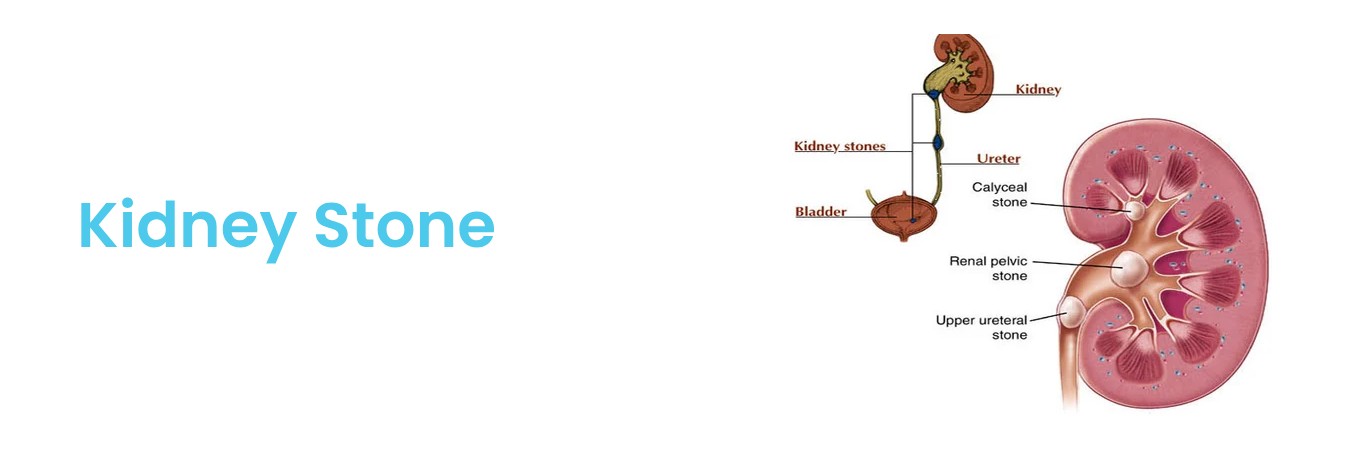Varieties of Kidney Stones:
- Calcium stones
- Struvite stones
- Uric acid stones
- Cystine stones
Risk Factors:
- Obesity
- Hereditary predisposition
- Dehydration
- Elevated intake of calcium supplements
- Increased consumption of animal protein
Kidney Stone Treatment in Delhi:
Diagnosis of Kidney Stones:
Pilotheal's skilled urologists meticulously diagnose kidney stones. This process involves a thorough physical examination in which your medical history and current medications are carefully reviewed. To determine the root cause, the doctor may recommend specific diagnostic tests:
Blood Test: Evaluates uric acid and calcium levels, as well as overall kidney health, guiding subsequent treatment decisions.
Imaging Tests: Ultrasound, X-ray, and CT scans confirm the presence and dimensions of kidney stones.
Urine Test: Urine culture identifies infection levels within the body.
Four Kidney Stone Removal Techniques:
Upon diagnosis results, the doctor prescribes the most suitable kidney stone treatment based on the individual's condition.
ESWL (Extracorporeal Shock Wave Lithotripsy): Utilizes shock waves to fragment kidney stones into smaller pieces, facilitating their passage through the urinary tract and eventual excretion.
Lithotripsy (Ureteroscopy): Involves guiding a ureteroscope through the urethra and into the ureter, employing laser energy to disintegrate and remove the stone.
RIRS (Retrograde Intrarenal Surgery): Conducts surgery within the kidney utilizing a flexible ureteroscope to extract upper ureter and small kidney stones.
PCNL (Percutaneous Nephrolithotomy): Minimally invasive procedure involving the removal of larger kidney stones through a small incision in the skin.
Please note that advancements in medical knowledge and practices may have occurred since my last update. Always consult with medical professionals or trusted sources for the most up-to-date and accurate information.

